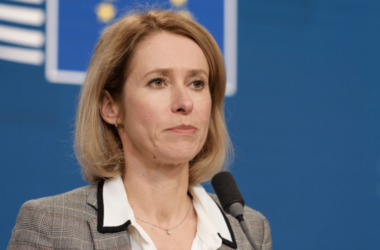In a move that raises eyebrows across Europe, German Foreign Minister Annalena Baerbock has once again called for increased Syrian migration to Germany, claiming the country “needs migrants to function” due to its declining birth rate. She made the remarks in Damascus during a press conference on March 20, marking the symbolic reopening of Germany’s embassy.
Rather than addressing the ongoing domestic challenges linked to mass migration—rising crime, social unrest, and terrorism—Baerbock is doubling down on a policy that has already fractured German society. But the real shock lies in the context of her visit. Syria is now controlled by Hay’at Tahrir al-Sham (HTS), an Islamist group formerly affiliated with Al-Qaeda, yet Germany has not only reopened its diplomatic mission but also pledged more than €100 million in aid. The EU followed suit, approving an additional €2.5 billion last week for “reconstruction and humanitarian assistance.”
At the press conference, Baerbock emphasized the need to promote the German language abroad to help integrate future migrants—but she failed to address the bigger question: integration into what, and under whose values? Meanwhile, Syrian President Ahmed al-Scharaa once again refused to shake her hand, repeating the public snub from her January visit.
Even as Baerbock warned about the dangers of extremist Islamist groups, she pledged another €50 million at a Riyadh conference for “humanitarian aid,” adding to the €8 million announced just days earlier. The new HTS-led government, which the EU is now effectively legitimizing, has already been linked to the deaths of thousands, including 7,000 Christians and 740 Alawite civilians.
Germany’s stance sends a bewildering message: it is pouring money into an Islamist-controlled state while simultaneously inviting its citizens to migrate. At the same time, terrorist attacks and violent crime continue to rise within Germany’s own borders. The contradiction is glaring—Berlin is not just importing instability; it’s bankrolling it.




